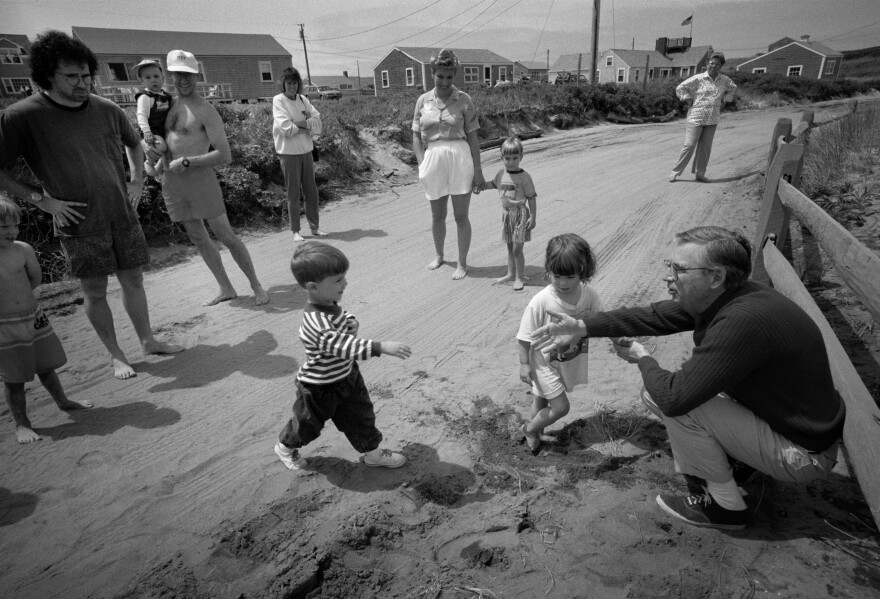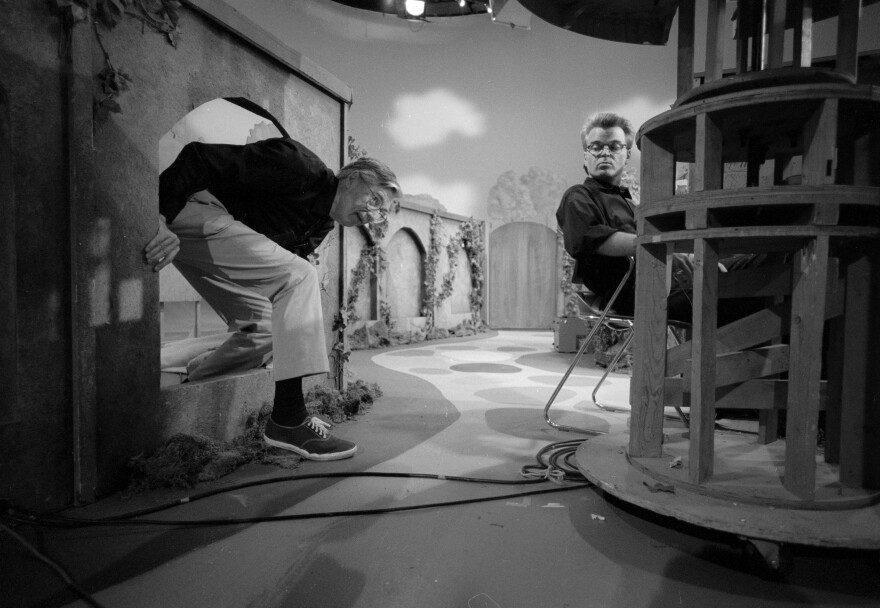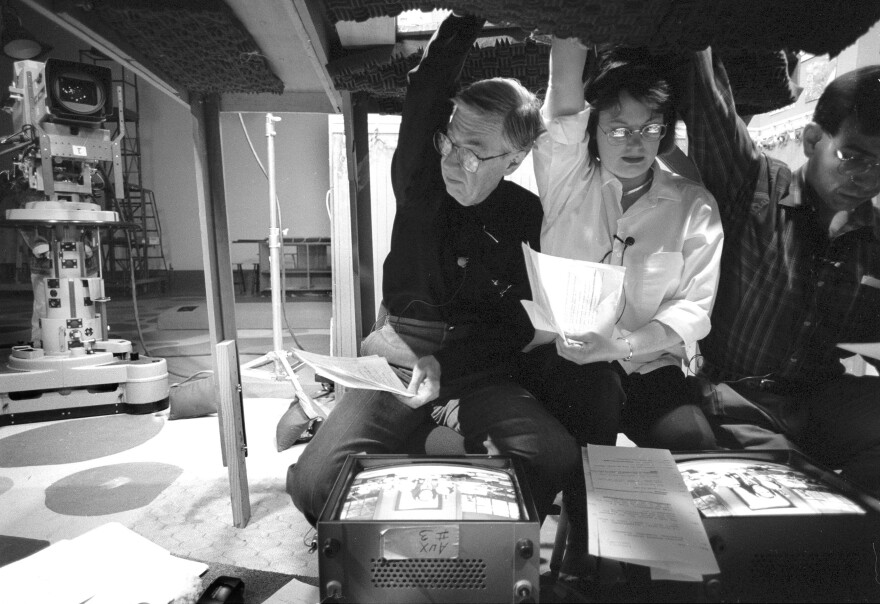Mister Rogers is clearly having a moment — the children's television icon has been the subject of two documentaries and a biopic movie, A Beautiful Day in the Neighborhood. But Fred Rogers is timeless.
For more than a decade, Lynn Johnson photographed the gentle host of Mister Rogers' Neighborhood: first for The Pittsburgh Press, then for Life magazine, and then for years after the assignment ended. She was fiercely committed to documenting the man who could deeply connect with the hearts and minds of children. "It was a delight being in his energy field," Johnson says.
She photographed him in the studio, on vacation, on out-of-town trips for the show, and in his own neighborhood of Squirrel Hill in the city where both lived: Pittsburgh. You might say that Johnson was his neighbor — or at least a nearby one.

In an interview, Johnson spoke about sharing time and space with the man who believed that love, compassion and tolerance could be spread through the medium of television. The interview is edited for length and clarity.
How did your experience of Fred Rogers match up with the man in the red cardigan and sneakers we know from his television show?



The person you saw on set was what you saw off the set. I saw him stop in the middle of Los Angeles airport to get on his knees to talk to a child.
He knew the importance of bringing yourself to a child's level — to speak with children, never to them.
That eye-to-eye contact was critical for him. It's about understanding and recognizing the child as an individual.


You said that Fred Rogers taught you so much. Tell us about lessons learned.
I met him at a time in my career before I learned to work deeply as a photographer.
He helped teach me how to value others, how to work with people so that they don't feel taken advantage of and how to work in that extremely delicate and fragile space that allows you to tell their story with integrity and causes no harm. Recently, I led a conversation with a group of women photographers. I asked everyone to begin the conversation in the way that I heard Fred do so. He'd ask everyone to close their eyes for a minute and think about those who have been helpers in their lives. It is about gratitude and love, and I think that's the essence of who he was.




"The heart was made for love," he told you in a conversation you keep on your cellphone.
When I am truly drained or used up by something I've seen, like the darkness of what we face in the world because we refuse to accept each other, I listen to that recording.
Did you ever see him angry?
Only once. We had flown from Pittsburgh to Los Angeles, and he was a bit out of sorts because of the time change. But even when he was short with someone, it was not toxic. You could feel him holding on to that space of civility.




What did you think of how Tom Hanks, nominated for an Academy Award in the role, portrayed Fred Rogers in the movie [A Beautiful Day in the Neighborhood]?
Tom Hanks has a lot of his cadences as well as the silences. He really studied the man. It felt very near the truth. In the scene when they are all in a Chinese restaurant and the camera scans the diners, I realized that all the people there were his original production people I'd met. His wife, Joanne, was there, too.
You spent more than a decade documenting his life. Were there aspects of him that remained a mystery?
He had that deeply private pain that everyone holds. In his case, it was the pain of being bullied as a chubby kid — the kind of poison that can sit in you and has to do with the darker emotions based in fear and anger for being treated a certain way. I have a feeling there was some damage there, though I never had insight into that. I couldn't push it, and maybe I didn't want to know.





How would he have reacted to the intolerance and hate we see too much of in the world today?
I think he would be heartbroken, but he would be working to make it better. He was constantly thinking about how to make complex and scary issues understandable and less traumatic for kids. He was always addressing the question "Is your neighbor worth loving?" And right now, we are not facing that question.
If Fred Rogers were standing in front of you right now, what would you say to him?
I wouldn't say anything. I would just sit in his presence in silence.
Copyright 2023 NPR. To see more, visit https://www.npr.org.



